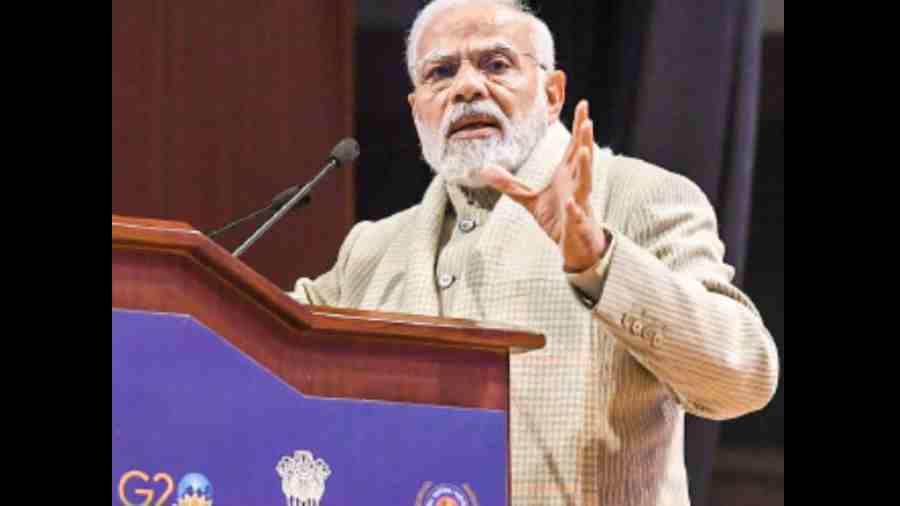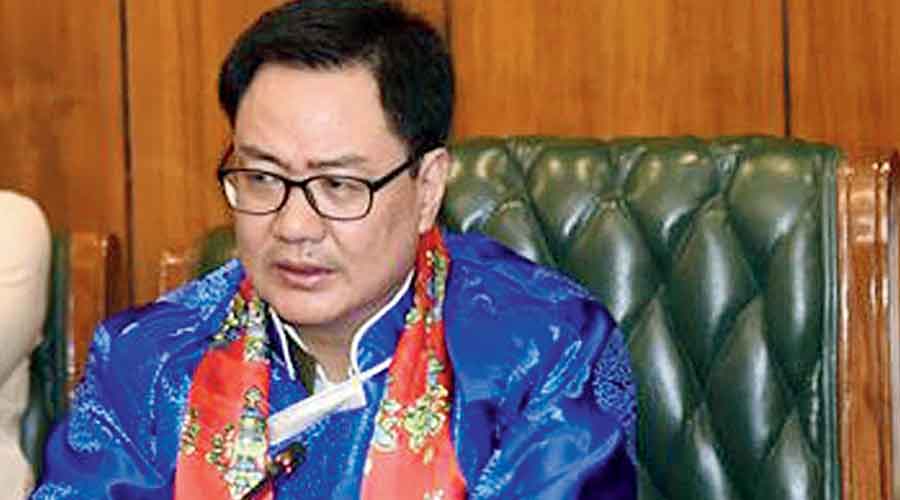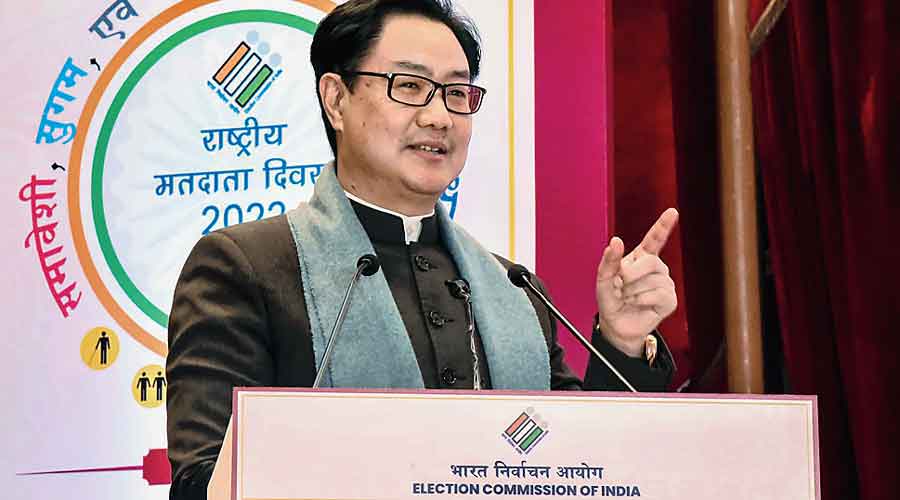Thanks to the BBC, the Narendra Modi government has been compelled to underscore the exalted status of the Supreme Court at a time the Union law minister has been making controversial remarks about the mechanism to appoint judges.
“Some people in India have still not moved away from the colonial influence. They consider BBC to be above India’s highest court and pull down the country’s prestige and image to any extent to please their ideological masters (naitik aaka),” Union law minister Kiren Rijiju tweeted on Sunday
The law minister was presumably referring to the controversy over the BBC’s documentary, India: The Modi Question, the first part of which deals with Narendra Modi’s role as chief minister during the riots of 2002 in Gujarat.
The Supreme Court had last year upheld the clearance given to Modi by a special investigation team in a riot conspiracy case.
Several clips of the BBC documentary have been blocked on platforms such as YouTube and Twitter. Unnamed and amorphous “sources”, not the very visible and mighty Government of India, have shared with the media an unsigned statement that said the information and broadcasting ministry had directed YouTube and Twitter to block access to the channels.

Narendra Modi in New Delhi on Sunday. PTI picture
One of the three alleged reasons cited in the unattributed statement is that officials, not elected representatives, had “examined the documentary and found in it an attempt to cast aspersions on the authority and credibility of the Supreme Court”.
The theme should be familiar to minister Rijiju.
Less than two months ago, Justice Sanjay Kishan Kaul, the second senior-most judge and himself a collegium member, had told R. Venkatramani, who as the attorney-general is the top law officer representing the Centre, during a hearing: “When someone high enough says, that it (the judgment that struck down the National Judicial Appointments Commission) should not have happened, we have ignored all press reports. But this has come from somebody high enough who says let them do it themselves, we will do it ourselves…. It is crossing the Rubicon… by keeping the names pending for the last two months, the whole thing has come to a standstill.”
The court was dealing with a contempt petition filed by the Bengaluru Advocates Association seeking proceedings against the Centre for not clearing several names despite the collegium iterating them for the second time. During the hearing, Supreme Court Bar Association (SCBA) president Vikas Singh had referred to various statements made by Rijiju in which the minister had made critical remarks about the collegium system. Justice Kaul did not refer to the law minister by his designation or name.
The information and broadcasting ministry had not then taken the initiative to get blocked statements showing Rijiju’s remarks on the judiciary.
But there was no clarity till Sunday night — even by way of parentless statements — whether the Centre would deploy on the BBC its agencies, known by two-letter and three-letter abbreviations.
The Congress referred to that element. “If the BBC headquarters were in Delhi or anywhere else in India, Modi would have sent the Enforcement Directorate by now,” Congress spokesperson Gourav Vallabh said on Sunday.
“If the ED were busy, the CBI would have raided them. If CBI too were busy, income-tax (authorities) and local police would have swung into action. Unfortunately for Modi, they (BBC) are operating from London,” Vallabh added.
The Opposition party felt that Modi hadn’t learnt anything from then Prime Minister Atal Bihari Vajpayee’s advice to observe “raj dharma (duties of a ruler)” following the Gujarat riots, and still thought he could suppress the truth by blocking access to information.
“There are schemes like Make in India, Start-up India. Now Modiji has brought a scheme, Block in India,” Vallabh said.
“The government doesn’t want to see difficult questions. But the truth (can’t be made to) disappear by closing the eyes. The BBC documentary showed the same thing that had compelled Vajpayee to ask Modi to follow raj dharma.
“Instead of paying heed to your own leader’s advice, you rely on Block in India. Such ploys create suspicion that what the BBC is showing is true. Whenever something uncomfortable comes up — from (India’s poor rankings on) the hunger index to poverty and press freedom — the government says we don’t accept (the reports). Your desperation to block the documentary gave credence to the documentary.”











